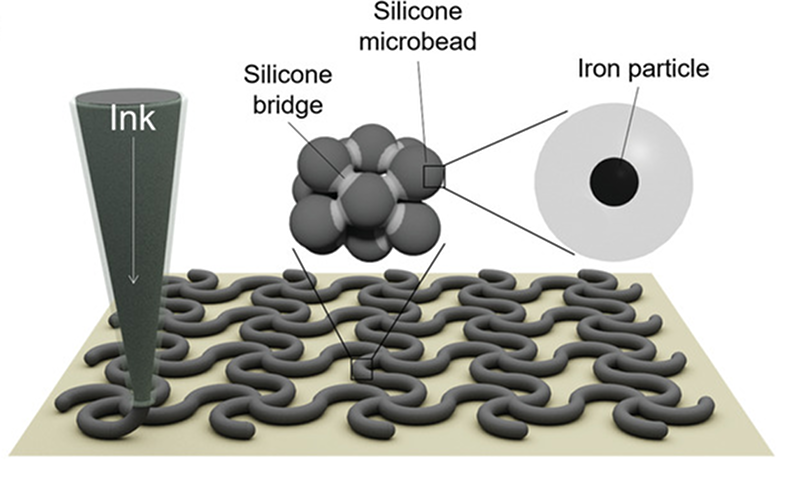It always seems to us that the best robots mimic things that are alive. For an example look no further than the 3D printed mesh structures from researchers at North Carolina State University. External magnetic fields make the mesh-like “robot” flex and move while floating in water. The mechanism can grab small objects and carry something as delicate as a water droplet.
The key is a viscous toothpaste-like ink made from silicone microbeads, iron carbonyl particles, and liquid silicone. The resulting paste is amenable to 3D printing before being cured in an oven. Of course, the iron is the element that makes the thing sensitive to magnetic fields. You can see several videos of it in action, below.
Obviously, these structures aren’t going to replicate Robbie the Robot any time soon. However, in the paper published in Advanced Materials Technologies, the researchers identify creating active tissue scaffolds for cell cultures and mimicking creatures that dwell on water surfaces as two possible applications.
The device requires a single electromagnet for activation. However, it did make us think about using more conventional magnetic materials and external magnetic fields to perform tasks. It Seems as if it wouldn’t be that hard to do.
There’s a lot going on in the world of soft robotics lately, such as this jellyfish, for example. Or this stingray made from rat cells.
















Please be kind and respectful to help make the comments section excellent. (Comment Policy)